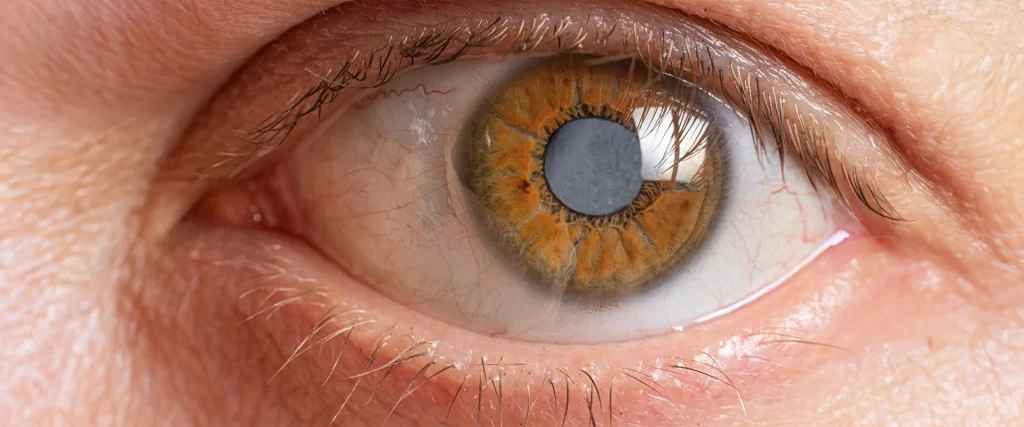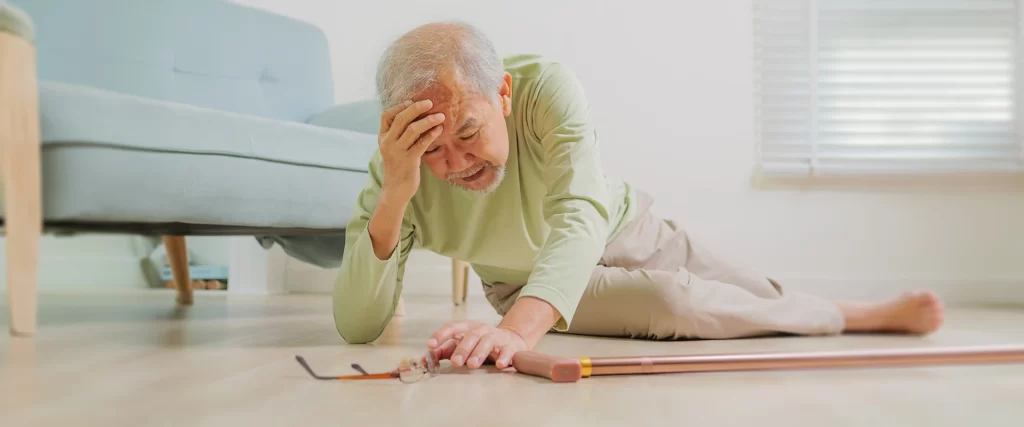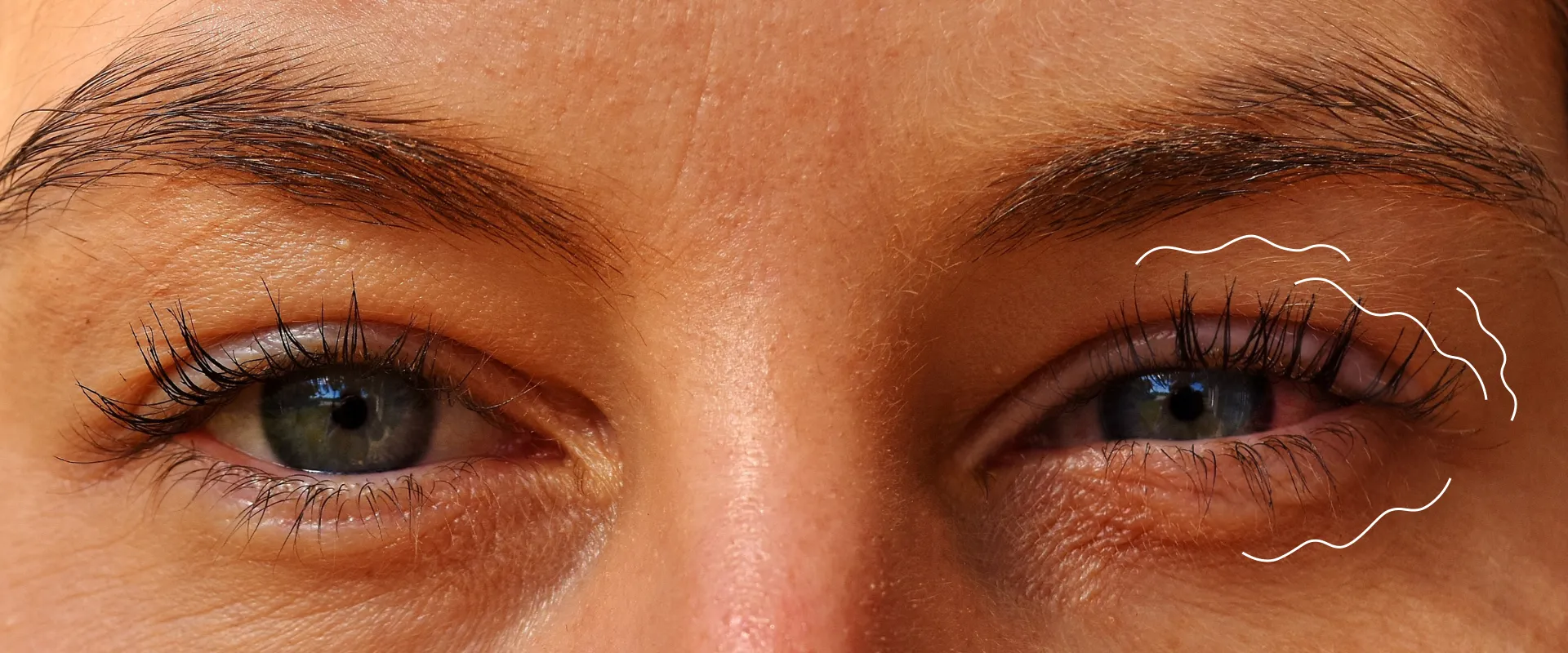
Dana Buchman
Professional, Fashionable, and Functional FOR WOMEN WHO WANT TO TAKE CHARGE Designer Dana Buchman has

Have you ever experienced waking up or staring at a blank space when suddenly, your eyesight begins to black out? If that is the case, you are probably dealing with temporary blindness or blind spots.
This blog will discuss and explain the possible causes of temporary blindness, its symptoms, and preventive actions.
Temporary loss of vision is an eye condition that often occurs when the blood flow to your eye is cut down. This happens when the retina, a layer of tissue at the back of the eye responsible for sensing light and sending signals to the brain, starts to tighten, leading to vasospasm.
Vasospasm often occurs when you quickly stand up from lying down. However, it can also be a symptom of a more serious underlying illness that you may be unaware you already have.

Acute Glaucoma occurs when there is a fluid build-up in the front part of your eye, which causes pressure that leads to damaging the optic nerve. It can either affect one or both eyes.
Glaucoma is the second leading cause of blindness, and that is why it is necessary to manage or treat it immediately to prevent permanent loss of vision. In addition to this, people who have diabetes are also more susceptible to experience this type of eye disease. Therefore, you must have a regular check-up to determine any other underlying diseases that may affect your vision.
Listed below are the general symptoms.There are several glaucoma stages and symptoms may vary depending on the type of glaucoma you have. Please note that it is important to consult your eye doctor when you experience any of these symptoms to avoid self diagnosis.

This may come as a surprise to many people, but everyday activities such as sports, hobbies, applying makeup, or even simply cleaning can negatively affect your eyes.
One example is a chemical burn on the eye, which can result from using various chemicals without wearing eye protection while cleaning.
Another example is applying eye makeup without proper caution, such as accidentally poking your eye with a brush or mascara, which may lead to corneal abrasions.
Playing intense sports like football or boxing without protective eye gear can also take a toll on your eyes.
While sunlight is a source of vitamin C, it is also necessary to recognize its disadvantages to our health, especially our eyes. Excessive exposure to the sun may still lead to alarming consequences such as permanent eye damage.
These are some of the symptoms to look out for:

An ocular migraine, also known as a retinal migraine, is an episode of vision loss usually in one eye and is associated with a severe headache. This occurs when there is a problem with how the brain processes signals from the eyes, which may lead to visual issues like scotoma (aura or blind spot).
The cause of ocular migraine is still uncertain, but experts suggest it may be related to decreased blood flow in the retina and genetics.
The following are symptoms you may experience within 5-60 minutes:

A Transient Ischemic Attack (TIA) or most commonly known as a mini stroke, typically lasts only a few minutes due to a temporary blockage of blood flow in the brain.
This is usually a result of a poor diet and an unhealthy lifestyle, such as smoking, overconsumption of alcohol, sugary drinks, and fatty foods, which can lead to the development of diabetes and high blood pressure, both of which contribute to stroke.
The following symptoms should be noted:
Doing household chores and outdoor activities is inevitable. However, you can still do them without fear of damaging your eyes by wearing protective eye gear, such as sunglasses and eyeglasses.
In addition, prioritizing your health is essential. Avoid certain triggers, including excessive caffeine and alcohol consumption, and manage stress, as it can contribute to ocular migraines and strokes.
Check your family health history and discuss it with your eye doctor to take preventive actions before any issues develop.
Regular visits to your doctor can be life-saving and avoid the danger of serious eye illnesses like the temporary loss of vision, as they may suggest more in-depth eye examinations, such as glaucoma testing.
The eyes are one of the most important and sensitive parts of our body. Therefore, preventive eye examinations and overall health care are essential for maintaining healthy vision.
Book your appointment online and visit Executive Optical for a free eye check-up.

Professional, Fashionable, and Functional FOR WOMEN WHO WANT TO TAKE CHARGE Designer Dana Buchman has

Understanding This Refractive Error People with astigmatism see the world differently. From blurry vision and

Do you experience those annoying spasms in your eyelids that won’t go away? What you